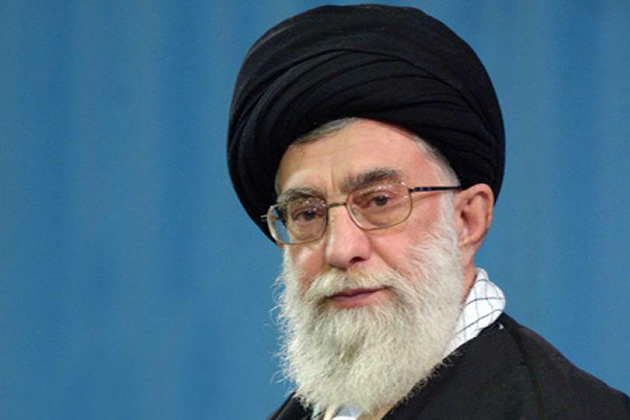Imperial headaches in Syria

Reason Wafawarova on Thursday
The West’s imperial planners are very worried. There is this question of why Russia is in Syria in the first place. There is the second question of why Russia is aligned with Iran.
Critics of US President Barack Obama accuse him of running a foreign policy that consists of nothing but a vacuum, and to these people the foreign policy of the US is like nature, which by definition abhors a vacuum.
Obama’s scaling down of the Iraq occupation, the deadly blunders in Libya, the disastrous inherited adventures in Afghanistan, the frequent diplomatic clashes with an irascible Benjamin Nenyatahu of Israel, the ISIL quagmire in Syria and Iraq, the nuclear deal with Iran, and indeed the events surrounding the entire Middle East have all been used by Obama’s opponents to vindicate the now too common phrase: “Our enemies do not fear us, and our allies do not trust us.”
Obama from the onset dreamt of a presidency that would end the Bush wars in Iraq and Afghanistan, and he envisaged himself ending the shameful legacy of Guantanamo Bay, and it also turns out that he has favoured to end the long standing impasse between the United States and its two long standing foes, Cuba and Iran.
The United States just realises that under the Obama administration, Washington is no longer in control of the fractured, cobbled-together Iraq once fully run by George W. Bush’s administration. This in imperial terms is seen as an escalating danger to Israel, and some may dare say to the United States itself.
The way Western powers carved up the Middle East after World War I was from the onset never meant for democratic governance, and it is this background that has made George W. Bush’s democratisation dream a nightmare.
The Middle East is not only tribally defined. The region is also the bedrock of religious differences and conflicts, and that includes inter-Islam deep-seated conflicts. The reality of the religion and culture of the Middle East is such that only monarchs and strongman rulers can keep the region stable. Iraq under Saddam and Libya under Gaddafi were good examples.
The West removed the stability of these two countries, irreversibly throwing them into blood-letting, corruption and monstrous anarchy.
The puppet governments of Iraq and Afghanistan initially ran the two countries virtually under the “stabilising” military presence of the United States during Bush’s time. Obama came in and his administration was not too keen to be the unwanted bodyguards of unwanted and unpopular Western-imposed puppet rulers. The diminishing backup up power from Washington helped to motivate and rejuvenate the Taliban in Afghanistan, and lately helped ISIS insurgents to ravage Iraq.
The withdrawal of US troops from Iraq has been viewed by the pro-war Republicans as a terrible misstep by Obama, and this is because it virtually eliminated any direct influence over day to day events in the formerly US occupied country. The strategy to launch military operations from neighbouring US lackey countries like Qatar, Saudi Arabia and Bahrain has been viewed as problematic because raids into neighbouring Arab states tend to be very unpopular with the locals.
For almost a year, Obama’s military outfit alongside lapdog allies like Australia has been conducting ineffective and lackadaisical airstrikes against supposed ISIS forces in Syria and Iraq, and commentators in the West have been predicting a lengthy war of indefinite proportions.
All of a sudden a Russian General delivers a letter to the American embassy in Iraq, literally demanding the cessation of US military activities in Syria. Obama has a famous reputation for red line threats, especially when it comes to the Syria conflict. He could not have missed the glaring fact that this time the red line in the Syrian sand had been drawn by someone whose threats the whole world seems to take as credible: Vladimir Putin.
In no time the Americans were “deconflicting” military operations with Russia. Russia was not in any lackadaisical bombing mood, wiping out the military basis of anti-government rebel fighters in Syria with unmitigated emphasis, totally ignoring the Western defining line between good and bad terrorists in that Arab country.
Russia did not spare Western-backed rebels, deemed in the West to be “moderate” mujahedeen all out to dethrone the “evil regime” of Assad. The West is haplessly seething with anger at Russia, and Russia is asking whom exactly the West has been bombing in Syria. Iran’s Ayatollah has decisively decreed a ban on talks with the United States, throwing into tatters Obama’s dream of a historic reunion with Iran, itself a former strong long time ally of the United States for many years after World War II.
Iran has welcomed Russia’s military incursions into Syria, and the Assad regime is much all the more stronger with Iran and Russia’s timely backing.
At the rate things are going, the possibility of an air-to air missile launch is not far fetched, and should that happen, a fighter jet from either Russia or the United States may be knocked down from the air. That could prove to be disastrous, or could make the foreign policy of the affected side look feckless, something both Putin and Obama can hardly afford.
The West’s imperial planners are very worried. There is this question of why Russia is in Syria in the first place. There is the second question of why Russia is aligned with Iran.
The West wants to establish the common goals between these two countries. It is important for the West to be sure of the colluding factors between Russia and Iran, and speculation has been rife.
Most probably the two countries entertain individual goals that can for now be met by this temporary alliance, a colluding of convenience so to speak.
The West generally believes that Iran is motivated by economic factors such as the hunt for petroleum money, and there is also this widely held view that Iran is relentlessly after the annihilation of Israel. Both motivations are unacceptable to the West, and Obama is increasingly appearing as weak on both Israel and Iran, especially in the eyes of his opponents.
To many in the West, Russia is motivated by hegemony ambitions in the Middle East, and indeed across the world, as well as money, just like Iran and the West itself.
In the eyes of the West the common denominator bringing Russia and Iran together is oil and natural gas, the very two most important reasons why the West itself wants hegemony in the Middle East.
Although Iran has vast oil resources of its own, transporting the commodity to viable markets has been tremendously problematic under ruinous Western sanctions. Iran has no meaningful refineries of its own, and the accessing of viable markets in Western Europe could almost miraculously transform the fortunes of the Islamic nation.
Iran could be looking at the possibility of a pipeline with a terminal at a Syrian seaport, and such a development could give the country the much-needed flexibility in dealing with the ever-aggressive West.
Now Russia enters the fray, and the West has every reason to panic. Syria’s Mediterranean coastline and ports are a political golden opportunity in world politics.
Russia is seen as the power determined to protect Bashar Assad’s grip on power, and Assad is not good news for Western hegemony in the Middle East.
So Iran has deployed ground troops to deal with anti-Assad rebel factions fighting over a pipeline route, and Russia is providing air cover for the operation, alongside Syrian-based Russian air power used by Syrian government forces.
Suddenly the West has better understanding of why Russia demanded the removal of US aircraft, but the observation is rather belated.
The West sees in the success of this Russian offensive the de facto control of Syria by Russia. That observation can hardly be viewed as far-fetched. But more worryingly, the West is worried that Iran may end up having a massive source of income to bust the effect of sanctions. To the West this means a platform for Iran to launch an attack on Israel, or even an invasion. The paranoia over this sensitivity of a topic is enormous.
People like Don Loucks have claimed that Iranian leaders have promised the end of Israel within the next twenty-five years, and we have heard a lot about the alleged utterances of Ahmadinejad, to the effect that the former Iranian President wanted Israel “wiped off the map.”
Loucks actually believes that the alleged time frame of twenty-five years is “probably a ruse,” to hoodwink the world. He believes the Iran attack on Israel could be “sooner,” and he predicts “when it starts” it will “go nuclear very, very quickly.”
Don Loucks brags emphatically that, “Israel will not refrain when its existence is at stake.”
Don Loucks has every reason to brag. He writes, “You see, Israel is led by a real man, one who has personally bore arms, fought fiercely for his country, and stared death in the face. He knows the sting of battle, and the loss of family in the cause.”
This man fighter is non other than war-loving Benjamin Netanyahu, the Israeli Prime Minister who prides very well in “mowing the lawn of Palestine down,” a reference to the ritual and habitual slaughtering of the lesser beings in Gaza.
So we are being prepared for a war pitching an aggressor nation of Iran against a self-defending holy nation of Israel. The world is now used to the manufactured fact that Israel can never be an aggressor, regardless of who it chooses to attack.
When Benjamin Netanyahu says “Never again,” we all have to understand that whatever action Israel may choose to take at any given time, that action can only be to safeguard the vow that never again should another Holocaust be ever allowed to recur.
The actions to ensure this vow remains resolute may include the bombing of innocent women and children, alongside troublesome Hamas militants or any other “self-hating” Palestinians.
We just have to understand that “Never again” is the catch phrase to give meaning to what happens in the Middle East.
REASON WAFAWAROVA is a political writer based in SYDNEY, Australia.












Comments